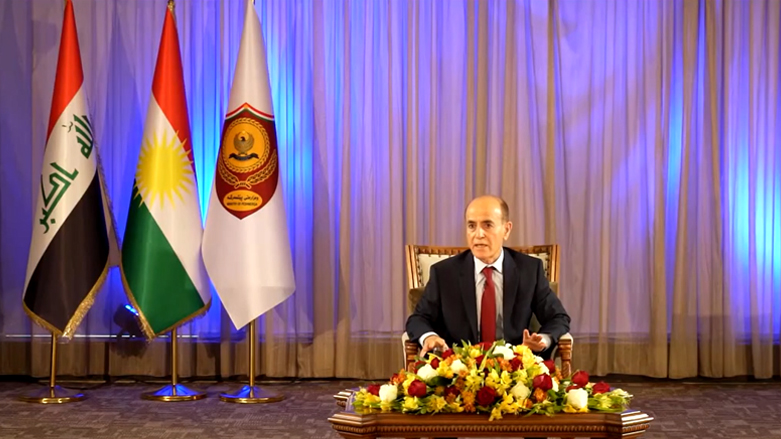Peshmerga minister stresses ‘trust building’ as a cornerstone to unify forces
Ismail reiterated that “trust building” is one of the major necessities of the ongoing reform.

ERBIL (Kurdistan 24) – One of the crucial steps towards unifying all the Kurdistan Region’s forces under one command is building solid trust between all parties, the peshmerga minister said in a presser recently.
During a press conference attended by numerous news outlets and aired on Thursday night, Minister of Peshmerga Affairs Shoresh Ismail discussed the ongoing reform efforts of his ministry and the unification of all forces under the leadership of the Kurdistan Regional Government (KRG).
In response to several questions asked by reporters about unifying the Peshmerga forces, Ismail reiterated that “trust building” is one of the major necessities of the ongoing reform.
If there is a solid trust between all parties to bring their forces under the command of the ministry, no “political earthquake” could shake that force, Ismail told the reporters.
The ministry has progressed in its reforms program, supported by the US-led Coalition against ISIS partners as well, the minister said.
Despite all the political and economic challenges, the KRG ninth cabinet has been persistent in its efforts to reform the sector, he added.
The minister acknowledged that there have been “obstacles” put in front of unification efforts from “individuals” without mentioning any names.
Ismail has recently paid a visit to London and Washington, where he met with both countries’ top defense officials to discuss the reforms and international support for the Kurdish forces.
A new directorate has been opened inside the ministry to make sure “gender balance” is guaranteed among the Kurdish, according to the minister.
Peshmerga-Iraqi Army coordination
One of the reasons usually cited by security officials behind the increasing ISIS insurgency is the lack of coordination between Erbil and Baghdad forces, particularly in the disputed territories.
Having been announced defeated, the terror group regularly launches hit-and-run attacks against both civilians and security forces.
Following series of meetings, the Kurdish and Iraqi forces have agreed to form a joint brigade to fill the security vacuum.
“Iraqi officials repeatedly tell us that the brigade will soon be formed,” Ismail said, expressing his disappointment that despite significant progress, the joint forces have not been formed yet.
“No one know really knows who decides in Iraq,” the minister said.
At least three members of federal police and a civilian have been killed in alleged ISIS attacks in Kirkuk recently.